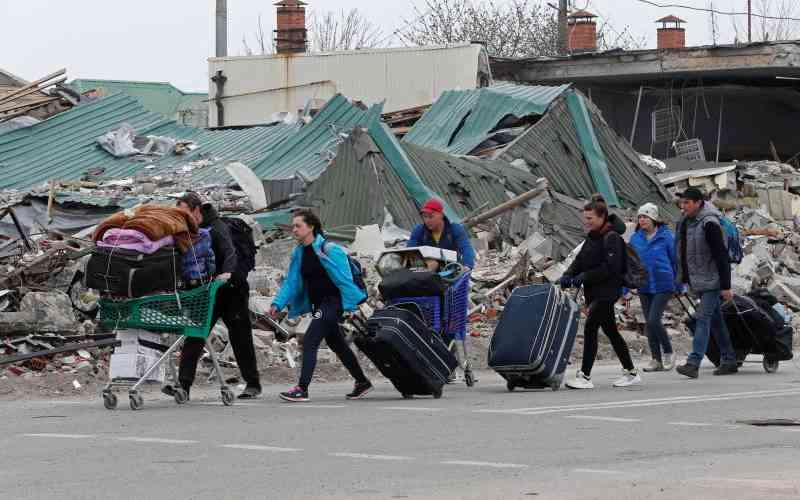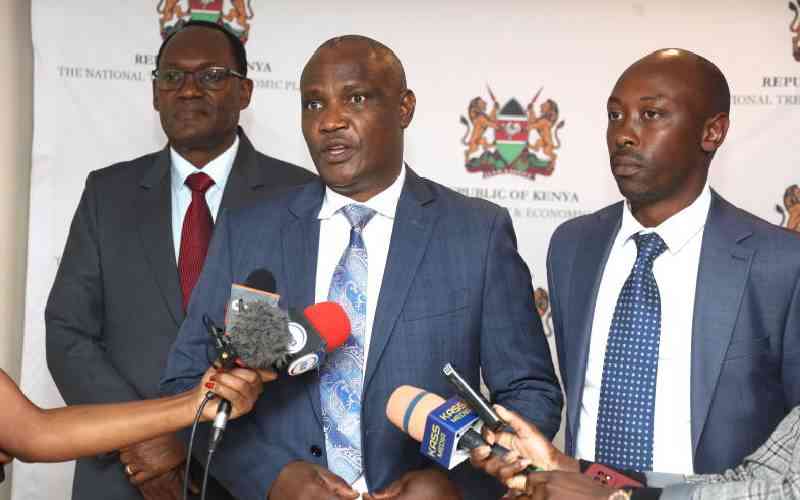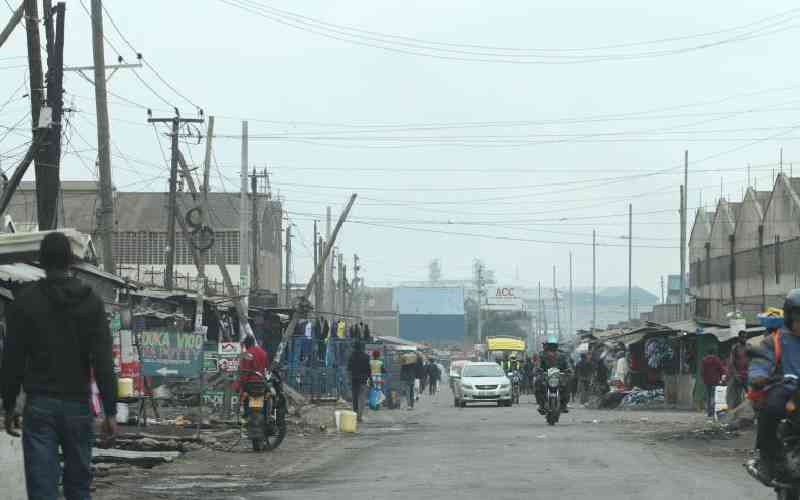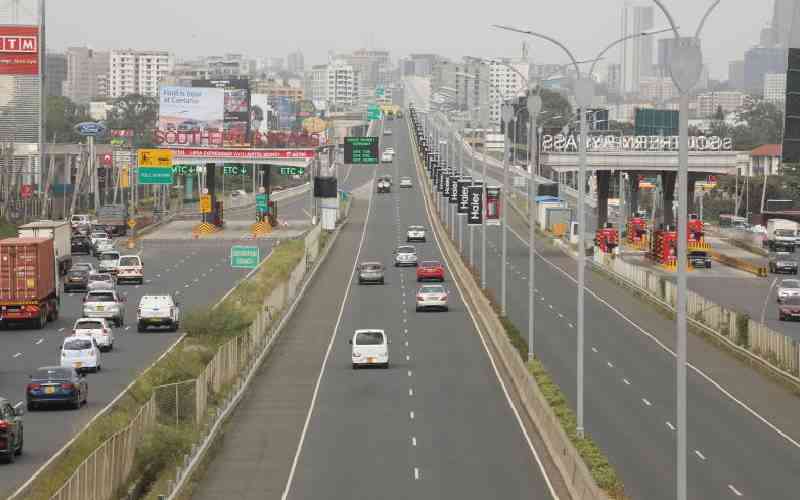
A few decades ago, a stroll around Nairobi’s Central Business District (CBD) or any of the city’s residential estates made for a refreshing experience.
However, with rapid industrialisation and an ever-increasing number of vehicles on our roads, Nairobi’s residents and those of other major towns are no longer breathing easy.
Like the rest of the world, East Africa is starting to feel the impact of the over-reliance on traditional and harmful fuels like petrol and diesel.
According to the International Energy Agency (IEA), over 600 million people in sub-Saharan Africa lack electricity access, and many depend on biogas, firewood, and charcoal for cooking and heating.
This reliance on polluting fuels causes deforestation, poor air quality, and health problems, particularly respiratory disorders in women and children. This is despite the region having abundant renewable energy resources such as solar, wind, and hydro.
Overreliance on fossil fuels is also unsustainable, as fluctuations in the global oil market have hit households and industries hard.
For instance, over the past year, global oil prices have fluctuated significantly due to various geopolitical and economic factors.
Late last year, crude oil prices declined on increased supplies and demand concerns.
The benchmark West Texas Intermediate (WTI) dropped to $70.40 per barrel late last year, which was attributed to rising supplies and negative economic indicators, including declining home and retail sales.
The trend was, however, reversed earlier this year, with oil prices starting to rise, driven by geopolitical tensions, including fading hopes of a ceasefire between Israel and Hamas and supply constraints as Mexico cut crude exports.
This has left developing economies like Kenya in a precarious position. The country being a net importer of refined petroleum products is particularly sensitive to these price fluctuations as reflected in rising fuel pump prices, which hit highs of Sh199.15 in Nairobi at some point last year.
It is against this backdrop that players in the industry are turning to cheaper alternatives, such as Liquid Petroleum Gas (LPG).
Autogas as a petrol alternative is 30–40 per cent cheaper per litre than petrol or diesel in most regions.
According to the World Liquid Gas Association (WLGA), the global lobby that promotes the use of LPG, an estimated 15,000 vehicles have been converted to run on autogas in Kenya, signalling a major shift from traditional fuels.
This has caught the eye of industry regulators, such as the Energy Regulatory Authority (Epra), which is developing regulations to ensure the safe and efficient use of autogas.
Despite these efforts, Kenya and the rest of the region lack adequate infrastructure to drive the uptake of autogas as a viable alternative to polluting fossil fuels.
As of June 2024, Kenya had 17 operational LPG fuelling stations, underscoring the potential for growth in this fledgling sector.
Gasfil is one of the firms at the heart of this expansion by developing retail shops, delivery systems, and collaborations with local businesses across East Africa.
We believe that with the right incentives from the government and other industry actors, this localised infrastructure can help overcome the difficulties in energy access due to weak supply chains and limited fuel availability.
This would go a long way in ensuring that LPG is available affordably to customers in both large cities and small communities.
To accelerate the adoption of autogas in Kenya and the larger East African region, governments can roll out several incentives and supporting policies, such as tax breaks on LPG and conversion kits and related equipment.
They could also create subsidies for vehicle conversion by providing financial assistance or rebates to vehicle owners who switch from petrol/diesel to autogas.
Another strategy would be fuel tax differentiation by having lower taxes on autogas compared to petrol and diesel. This would go a long way in making autogas a more attractive option compared to fossil fuels.
Regional governments also need to encourage investment in more LPG refuelling stations through Public-Private Partnerships (PPPs) besides supporting local cylinder manufacturing and LPG storage refuelling equipment to lower costs of the same.
To improve supply chains, State actors must streamline LPG importation and distribution to ensure stable pricing and availability of the fuel.
On regulatory support, authorities need to develop and enforce safety regulations for autoga s refuelling stations and vehicle conversions, efforts that Epra is already undertaking, but which could be enhanced for better compliance.
Another area of concern is industry standardisation, which can be enforced by ensuring high-quality conversion kits and fuel storage to prevent safety hazards as was witnessed in last year’s Embakasi gas blast that killed 10 people and left scores of others injured.
There is also a need for public awareness and education on the benefits of autogas, including lower emissions and fuel savings, especially in the wake of rising fuel pump prices.
A 2024 assessment of the Kenyan government’s vehicle leasing programme found that the average consumption per State vehicle was approximately 439.35 litres monthly, which translates into about 5,272 litres of fuel annually per vehicle.
Considering the government’s vast fleet of vehicles, this offers a glimpse into the astronomical annual spending on fuel, a cost that would be reduced significantly if the State were to convert some of its vehicles to autogas.
This would go a long way in boosting public confidence about the viability of autogas compared to fossil fuels.
Authorities could also offer tax breaks to ride-hailing companies and logistics firms that switch to autogas for wider adoption of the fuel option.
These, among many other strategies, could offer unlimited opportunities for Kenyan and other regional economies to reduce their fuel import bills, cut emissions and promote their energy security for future generations.
 The Standard Group Plc is a multi-media organization with investments in media
platforms spanning newspaper print operations, television, radio broadcasting,
digital and online services. The Standard Group is recognized as a leading
multi-media house in Kenya with a key influence in matters of national and
international interest.
The Standard Group Plc is a multi-media organization with investments in media
platforms spanning newspaper print operations, television, radio broadcasting,
digital and online services. The Standard Group is recognized as a leading
multi-media house in Kenya with a key influence in matters of national and
international interest.
 The Standard Group Plc is a multi-media organization with investments in media
platforms spanning newspaper print operations, television, radio broadcasting,
digital and online services. The Standard Group is recognized as a leading
multi-media house in Kenya with a key influence in matters of national and
international interest.
The Standard Group Plc is a multi-media organization with investments in media
platforms spanning newspaper print operations, television, radio broadcasting,
digital and online services. The Standard Group is recognized as a leading
multi-media house in Kenya with a key influence in matters of national and
international interest.











